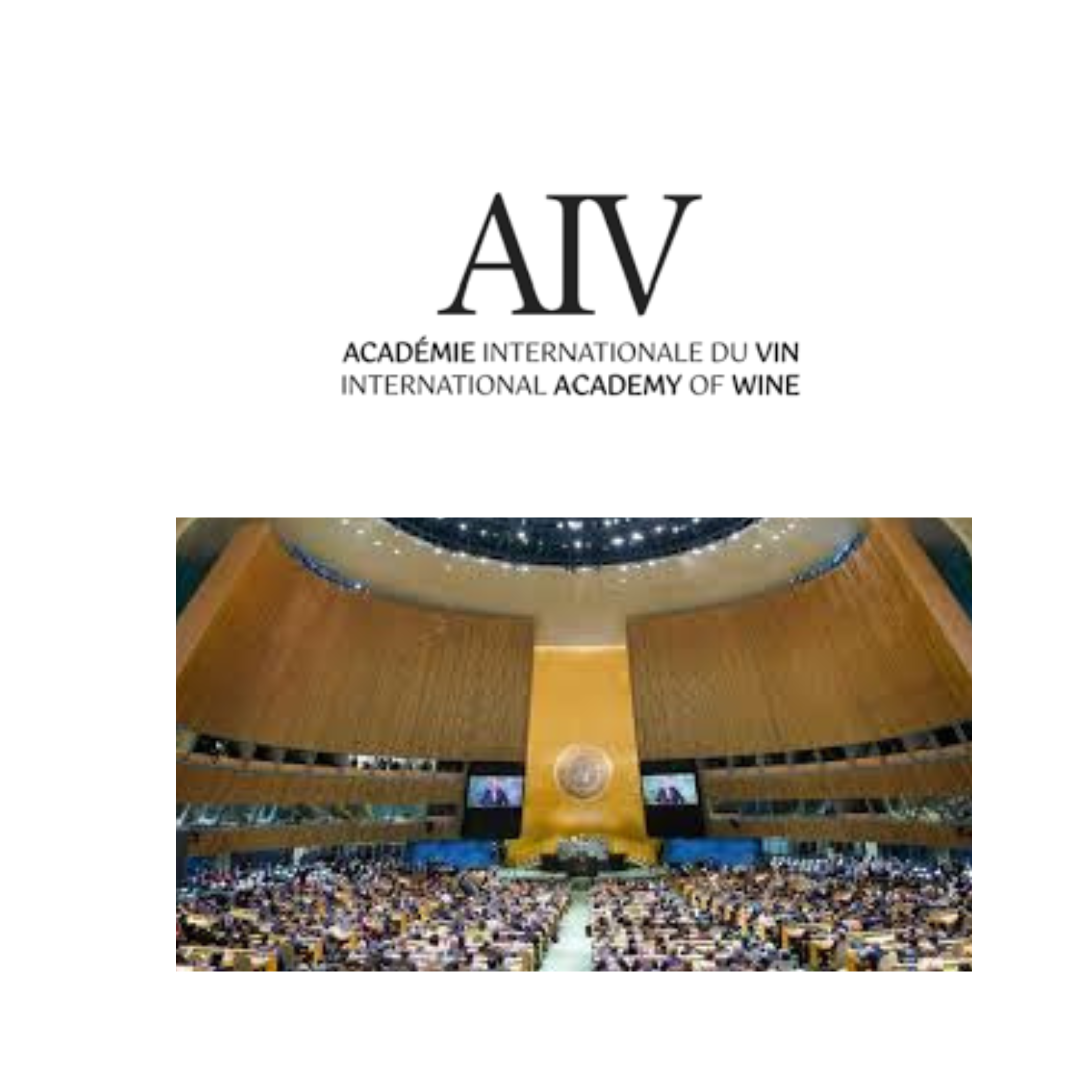Wine has long transcended its role as a simple beverage, serving instead as a living testament to humanity’s cultural, social, and agricultural heritage. Across civilizations, from the vineyards of Mesopotamia to the cellars of Burgundy and the valleys of Mendoza, wine has symbolized conviviality, peace, and continuity. Today, this millennia-old legacy faces an unprecedented challenge. For the first time in its history, the Académie Internationale du Vin (AIV), a body uniting nearly 100 eminent wine voices from 20 nations, has spoken publicly and unanimously to defend wine against the threat of “denormalization” proposed in global health discourse. Their Appeal below, addressed to the heads of state gathering for the 80th United Nations General Assembly, underscores the profound stakes of reducing wine to a mere health risk: the erosion of culture, heritage, and a universal language of humanity:
APPEAL BY THE INTERNATIONAL WINE ACADEMY TO HEADS OF STATE AND GOVERNMENT ATTENDING THE UNITED NATIONS 80TH ANNIVERSARY GENERAL ASSEMBLY IN NEW YORK
Ladies & Gentlemen, Heads of State and Government, On September 25th, at the 4ᵗʰ United Nations High-Level Meeting on the prevention and control of noncommunicable diseases and the promotion of mental health and well-being, you will be faced with a challenging brief: how can we prevent and control noncommunicable diseases without denying the foundations of our cultures, without erasing what makes our civilization thrive? Wine is at the heart of this question. Too often, it is reduced to a molecule of alcohol. Too simplistically, it is compared to a drug. But too rarely do we think about what it embodies. The International Wine Academy, whose members come from 20 different countries, wishes to alert you against the danger of reducing wine to a mere health risk, thereby forgetting its cultural, social and human dimension. Here is what is at stake. TO DENORMALISE WINE WOULD DESTROY A HERITAGE – A LEGACY OF HUMANITY Wine embodies eight millennia of human history: it is a catalyst for conviviality, joy and sharing; a connection to the land and its landscapes; a universal language linking people – from Georgia to Ancient Greece, from Oregon to Tuscany, from France to New Zealand. Unique yet global, it expresses mankind’s patience before time, humility before the earth, and the desire to celebrate together. Offering a glass of wine is a gesture that expresses peace, friendship, brotherhood, and the joy of being together. Enjoying wine moderately is to defend the culture of taste and restraint, and perpetuate a bond that unites continents, people and generations. It is about appreciating rather than abusing, tasting rather than drinking. It is about approaching health through social and family ties, mental well-being and the joy of life – for the link between happiness and health is undeniable. TO DENORMALISE WINE WOULD DENY ITS BENEFITS AND CLOSE SCIENTIFIC DEBATE PREMATURELY A recent NASEM report (National Academies of Sciences, Engineering, and Medicine, USA) concluded that “compared to no alcohol consumption, moderate consumption is associated with lower all-cause mortality.” We do not claim to settle the scientific debate, but, like many experts, we regret the absence of a large-scale randomized trial, the only viable protocol to ground conclusions on certified evidence rather than insufficient observational data. TO DENORMALISE WINE IS TO CHOOSE PROHIBITION OVER EDUCATION AND FREEDOM We are fully aware of the dangers of excess. We recognize the need to prevent addiction, protect the most vulnerable, and combat abuse. We embrace this responsibility, for it is through education that consumers learn to taste, compare and appreciate wine with moderation – becoming ambassadors of balance. Through education, we believe we can both protect individual freedom to enjoy wine without abuse and promote responsibility and control. Wine thus expresses its truth through the transmission of knowledge, and know-how, and teaching moderation. For these reasons, Ladies & Gentlemen, Heads of States and Governments, we call upon you to act in a balanced and nuanced manner: combat excesses but recognize the value of moderation; prevent risks but preserve mankind’s bond with the earth; protect public health but respect the richness of cultures and the strength of traditions. Preserving wine means defending a civilization, a way of life, a living universal heritage, a part of humanity that has been passed down from generation to generation for thousands of years. On behalf of the International Wine Academy Guillaume d’Angerville, President & Véronique Sanders, Chancellor Lausanne, September 2025 www.academievin.org
The AIV’s open letter is not a denial of the need for public health vigilance, but rather a plea for balance, perspective, and nuance. To strip wine of its rightful place in society is to dismiss its contributions to culture, social well-being, and even responsible lifestyle practices rooted in moderation. At stake is more than a product: it is the survival of a heritage that binds generations, nations, and traditions. By defending wine, world leaders defend the principle that humanity’s greatest legacies should be preserved, not erased. The decision now before the United Nations is not solely about health policy; it is about safeguarding civilization’s enduring bond with the earth, with each other, and with the joy of shared experience.
Liz Palmer

